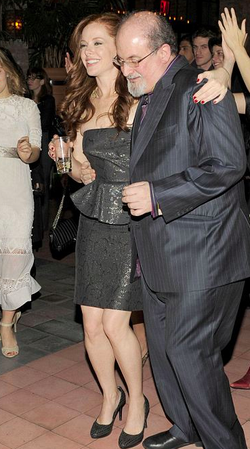Michelle Manning Barish

Michelle Manning Barish
Michelle Manning Barish is a writer, political activist, and single mother residing in New York City.
[0]On May 7, 2018 Barish, Tanya Selvaratnam, and two unnamed women accused New York Attorney General Eric Schneiderman of domestic violence.
Hours after the allegations went public, Eric Schneiderman resigned from office.
Education
Michelle Manning Barish studied Urban Humanitarian Emergency Crisis Management at Harvard University.
Career
Michelle Manning Barish became a political activist campaigning against The Iraq War after her brother was deployed to fight in the war.
Barish has appeared in a large number of videos for MoveOn.org and Art Not War, as well as various self produced videos on the subject.
She spoke publicly against the Iraq war in front of the United States Senate and also several other large rallies.
She has spoken out at the Church of the Lord in Brooklyn in the wake of the Trayvon Martin shooting.
Barish also spent weeks doing relief work in the Rockaways after Hurricane Sandy.
During her relief work she only saw the American Red Cross.
To bring attention to the failure of the American Red Cross she published a piece titled, "Shame on the Red Cross: How They’ve Failed on Sandy Relief," in *The Daily Beast *. [10]She has also made a video to educate people on proper disaster preparation.
Personal Life
Michelle Manning Barish was previously married to Chris Barish, the co-owner of nightclub chain Marquee.
They are divorced, and have a daughter named Bee.
Barish dated Salman Rushdie and, in 2012, rejected his marriage proposal.
She also gave back the seven-carat emerald-cut diamond engagement ring he had given her.
Abuse Allegations against Eric Shneiderman
On Monday, May 7, 2018 Michelle Manning Barish, Tanya Selvaratnam, and two unnamed women accused New York Attorney General, Eric Schneiderman of domestic violence.
The women publicly came forward in a *The New Yorker * article written by Jane Mayer and Ronan Farrow.
Both Barish and Selvaratnam allege that he repeatedly hit them, often after drinking, frequently in bed and never with their consent.
Manning Barish and Selvaratnam categorize the abuse he inflicted on them as “assault.”
They did not report their allegations to the police at the time, but both say that they eventually sought medical attention after having been slapped hard across the ear and face, and also choked.
Both women say that he threatened to kill them if they broke up with him.
A third former romantic partner of Schneiderman’s told Manning Barish and Selvaratnam that he also repeatedly subjected her to nonconsensual physical violence, but she told them that she is too frightened of him to come forward.
(The New Yorker has independently vetted the accounts that they gave of her allegations.) A fourth woman, an attorney who has held prominent positions in the New York legal community, says that Schneiderman made an advance toward her; when she rebuffed him, he slapped her across the face with such force that it left a mark that lingered the next day.
She recalls screaming in surprise and pain, and beginning to cry, and says that she felt frightened.
She has asked to remain unidentified, but shared a photograph of the injury with The New Yorker.
In a statement, Schneiderman said, “In the privacy of intimate relationships, I have engaged in role-playing and other consensual sexual activity.
I have not assaulted anyone.
I have never engaged in nonconsensual sex, which is a line I would not cross.”




